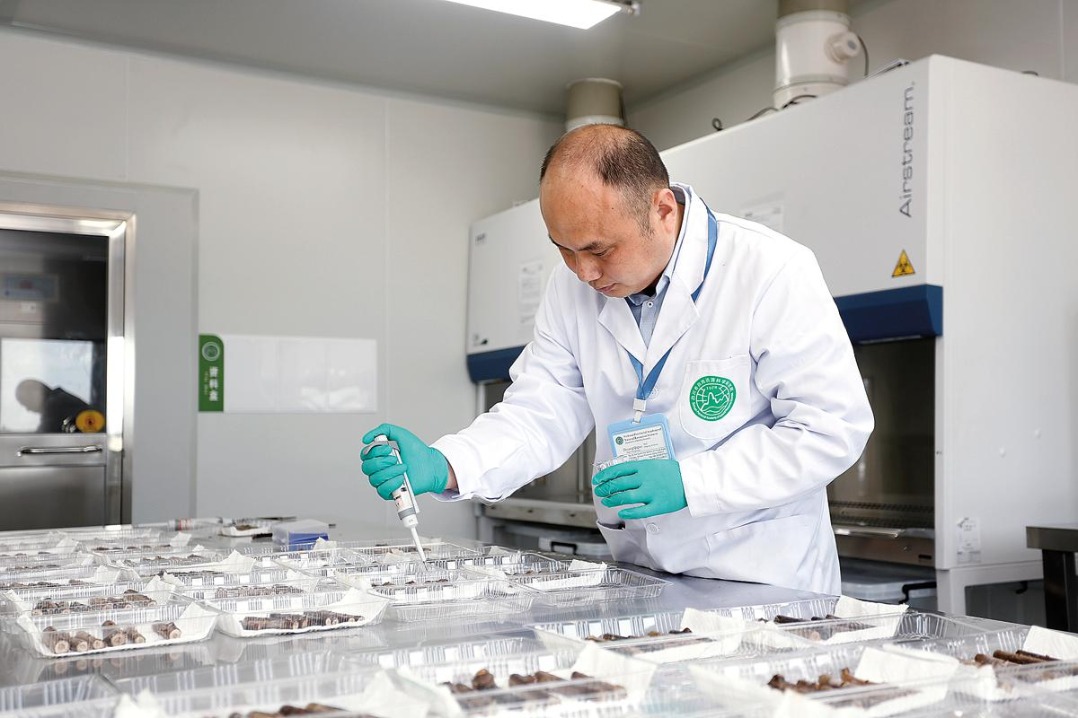Scientists reveal molecular mechanism underlying mortality of overwintering bees

BEIJING -- Scientists from China and the US have discovered the molecular mechanism behind the winter mortality of honey bees, offering a new possibility for improving bee health.
Researchers from the Institute of Zoology under Guangdong Academy of Sciences and the Bee Research Laboratory in Beltsville, Maryland with the Agricultural Research Service under the US Department of Agriculture, found that the sirtuin signaling pathway is the most significantly suppressed pathway in overwintering diseased bees.
SIRT1, a major sirtuin protein that regulates energy and immune metabolism, was remarkably downregulated in bees merely exposed to cold challenges, linking cold stress with altered gene expression of SIRT1, according to the study.
Researchers demonstrated that activation of SIRT1 gene expression by SRT1720, an activator of SIRT1 expression, could improve the physiology and extend the lifespan of cold-stressed bees.
The study suggests that overwintering bees increase energy consumption for maintaining hive temperature, thus reducing the energy allocated for immune functions. The overwintering bees are therefore more susceptible to disease infections, resulting in high winter colony losses.
The findings, published in the Journal of Advanced Research, provide a promising approach for developing therapeutic strategies aimed at mitigating bee colony losses.
- Sam Hou-fai sworn in as Macao's sixth-term chief executive
- President Xi's respect for academics impresses MUST faculty and students
- Kazakh envoy: we are ready to cooperate with Macao
- China expels a Philippine aircraft that illegally breached the airspace over China's Huangyan Island
- Xi inspects PLA garrison in Macao
- Changsha's metasequoia trees paint urban park vibrant hues



































